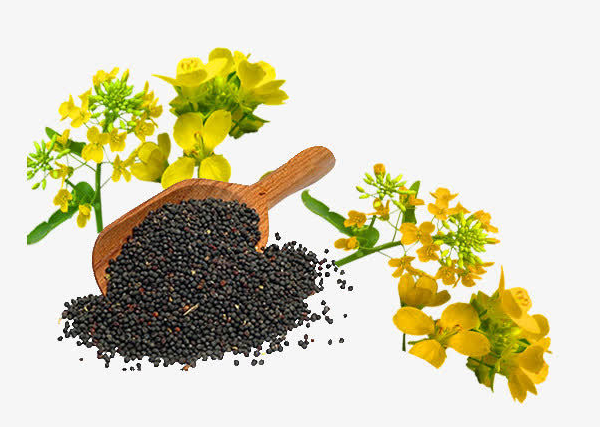In recent years, with the improvement of people's material living standards, some traditional things have gradually returned in terms of diet. For example, the pursuit of the strong aroma of rapeseed oil has become the biggest buying point for consumers, and it has also become the manufacturer to win consumers and occupy market share. The biggest selling point. For this reason, coriander seed oil is becoming the new favorite in the oil consumer market.

So what is coriander seed oil? In fact, it can be briefly summarized as: rapeseed oil with a strong fragrance produced by pressing with a small oil press is collectively referred to as "coriander seed oil" or "small mustard seed oil" on the market. Appropriate squeezing process and precise control of the temperature and time of frying seeds are the key to "wake up" the aroma of rapeseed oil, and the choice of refining process is also crucial to the preservation of the aroma of mustard oil.
1. Oil selection
The natural aroma retained in rapeseed oil is an important criterion for identifying the quality of mustard oil. The aroma of mustard oil is closely related to its raw material varieties and processing techniques. According to expert research, there are more than 30 substances that constitute the volatile flavor components of mustard oil, which are mainly divided into three categories: glucosinolate degradation products, oxidized volatiles, and heterocyclic substances. The synergistic effect of these compounds together reflects the characteristic flavor of coriander seed oil.

2. Squeezing and frying seed technology
The reason why "Heavy Coriander Seed Oil" is also called "Small Mustard Seed Oil" is that its production process is different from that of large-scale refined rapeseed oil. In particular, several key steps such as frying seeds determine the aroma of rapeseed oil.
Frying seeds is the most critical process in the production of small mustard rapeseed oil. People in the industry call it "seven-point fry, three-point squeeze". Its role is to adjust the structure of the oil and improve the quality of the oil. When frying the seeds, pay special attention to moisture, Temperature and time for frying seeds. After the rapeseed is put into the pot, the size of the heat and the time of frying should be determined according to the moisture of the oil; the water content of rapeseed is different, the temperature of frying seeds is not a constant value, and the frying smell is sticky for a long time, and the lack of frying aroma is not completely "awakened". "excitation". During the frying process, it is necessary to observe the color of the oil, feel the taste of the oil, and carefully grasp the degree of maturity of the oil. Over-ripe, not only tastes bad, but also causes a waste of oil; partial raw, it is difficult to ensure the aroma of rapeseed oil.

Another feature of the small mustard oil production process is the use of small oil presses. In addition to some family-style oil mills that use ancient wood for pressing, rapeseed oil manufacturers often use small screw presses such as 10 #, 95 #, etc. The machine has a small space in the press chamber and a large compression ratio. The mechanical pressing and grinding in the press chamber can better release the natural aroma of rapeseed.
3. Refining of crude oil
In the refining process of crude oil, it is another key to the preparation technology of small mustard oil to retain the rich flavor to the greatest extent. Generally, the refining of small mustard oil uses low-temperature hydration and low-vacuum drying methods to maximize the retention of the "strong fragrance" flavor substances in the pressed oil. Some small mustard oil production workshops will also add specific substances to hydrate the oil to absorb the water in the oil to reduce the impact of the loss of "scent" caused by other drying methods.
4. Development prospects
Supported by the increase in consumption of strong-flavor rapeseed oil, some enterprises that mainly produce refined rapeseed oil have also taken small squeezing as a new profit growth point and purchased small-squeezed production lines on a large scale.
At present, as vegetable oil processing enterprises are transforming into small squeezers, it is still unknown whether the fragrant vegetable oil consumer market can "deserve this important task". However, with the influx of small squeezed enterprises and expansion and capacity increase, the competition in the coriander oil market will become increasingly fierce.
Copyright © Henan Zhongxing Grain And Oil Machinery Co.,Ltd. All Rights Reserved. Powered by MetInfo